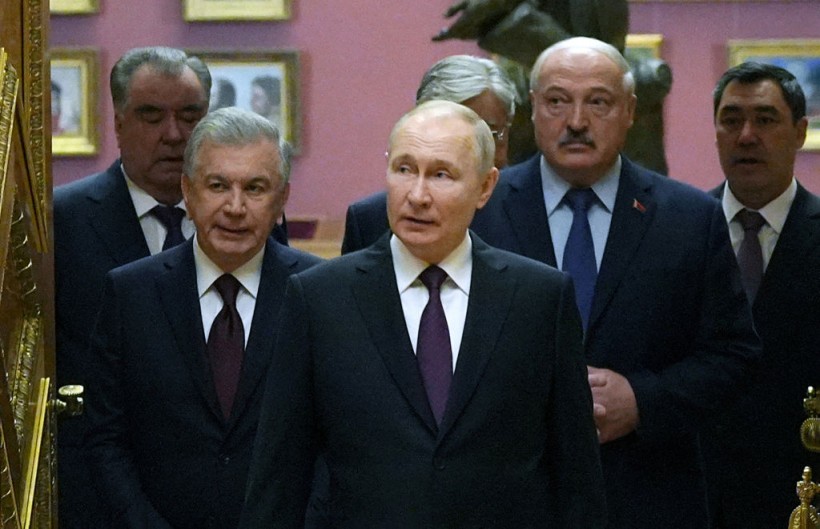
(Photo : ALEXEY DANICHEV/SPUTNIK/AFP via Getty Images)
Russian President Vladimir Putin decreed that Moscow would starve any nation siding with the western G7 price cap.
Vladimir Putin decrees that any nation supporting the G7 price cap will not get supplies beginning February 1 to five months from the date.
Vladimir Putin Declares Ultimatum
On Tuesday, President Vladimir Putin enacted a decree that disallows the supply of crude oil and oil products commencing on February 1 for five months to states that abide by the cap. This one was Russia's lengthy way of responding to a foreign price cap, reported Arab News.
The Group of Seven great powers, the European Union, and Australia consented this quarter to a $60-per-barrel price cap on Russian seaborne oil products effective from December 5.
The limit is comparable to the current price for Russian petroleum but well below the windfall price Russia had been able to trade for this year, which managed to help counterbalance the impact of punitive economic measures on Moscow, noted Reuters.
Moscow is the world's second-biggest oil exporter after Saudi Arabia, and significant disruption to its revenues would have far-reaching implications for global power generation.
The edict, posted on a government portal and the Kremlin website, has been proffered as a direct reaction to behavior that is unwelcoming and counterintuitive to international law by the United States and foreign states and international organizations wanting to join them.
Consignments of Russian oil and related products to international firms and individuals are prohibited, he maintains, given that an optimal price-fixing framework is either directly or indirectly envisaged in the service contracts.
This notes how the US and its allied nations are trying to impose a price cap. It places a ban to force on all stages in oil processing to the end buyer.
Mentioned in the degree is a clause that allows the Kremlin to bypass a ban in exceptional cases that is effective beginning February 1, 2023, that lasts until July 1, 2023.
Crude oil shipments will be forbidden beginning on February 1, but the Russian government will determine when oil-based products will be barred; this date might well be beyond February 1.
A G7 Oil Price Cap Could Impact the West
The price cap, unprecedented during the Cold War between the West and the Soviet Union, is anticipated to weaken Russian state coffers in addition to Moscow's military activities in Donbas.
A few analysts say that the cap will have little effect on Russian oil earnings. As the price of crude diminishes export earnings, Russia's fiscal deficit in 2023 could be greater than the scheduled 2 percent of GDP, as said by Finance Minister Anton Siluanov. It introduces a further financial dilemma for Moscow because it spends extensively on its military operation in Kyiv.
The Kremlin has finally given its answer help up for several weeks, and it says the price limit has its official answer.
There is, however, one exception that non-EU countries are permitted to import Russian crude oil by ship, but this will inhibit shipping, insurance, and reinsurance businesses from managing cargoes of Russian crude all around the world unless it is auctioned for less than the price cap.
But an exception is that non-EU nations can import seaborne Russian crude oil. Still, it will prohibit the shipping, insurance, and reinsurance companies from handling cargoes of Russian crude around the globe unless it is sold for less than the price cap, citing France 24.
EU members have independently implemented an economic blockade that hinders them from obtaining Russian oil shipped by sea. Russian President Vladimir Putin will make it challenging for G7 price cap-supporting countries.
Related Article: Turkey's Drone Deal with Albania Raises Tension Against Greece








